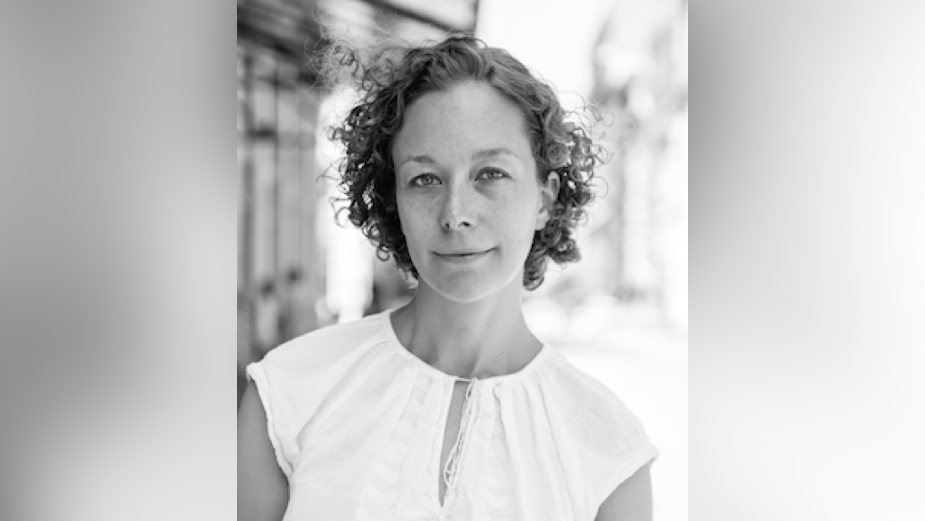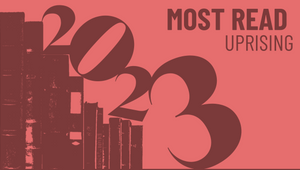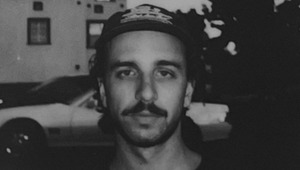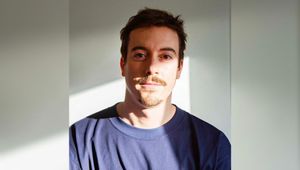
Future of Production: The Keys to the Perfect Production Partnership with 72andSunny’s Kate Morrison

Pulse Films predicts that 2021 will be the year that defines the future of production, a thought that's the driving force behind this exclusive new interview series on Little Black Book. Covering four key themes, the series will investigate how the pandemic has affected production and the shape of things to come.
Next up in the series is Kate Morrison, director of production at 72andSunny Los Angeles and former head of production at BBH New York. Kate helps make the ideas and output at 72andSunny better by innovating within a shifting media landscape, aiming to create work that moves clients’ business and makes an impact in culture. She is a firm believer that every idea is only as good as its execution and fosters a symbiotic relationship between creative and production, inspiring producers to give creative input, and creative teams to get their hands in the making.
LBB’s Addison Capper spoke to Kate about why remote editing has proved particularly tricky over the past year, how she’s holding herself and her team accountable to promote diverse talent, and how a burgeoning career in the clogs business led to advertising.
LBB> What lasting impact has the pandemic had on how you and your agency approach production?
Kate> It's been fascinating to see the resilience and capability of our team and the whole industry. I've been so I'm impressed with our ability to not give up, to figure out ways to make things, to keep making things that are really good, and then to figure out how we get back to being on set safely. There is a world where I think the talents of producers can be undervalued and I think this year, in terms of the curveballs that it's thrown at us, has really reinforced how exceptional our teams are, across the industry.
Thinking back to a year ago when everybody got sent home, we had an edit set up remote, we had to pull people out of a shoot in Prague, and we went immediately into a remote, overnight shoot for it. The amount of pivoting the teams have done and how capably they've pivoted, and how collective the experience has been, and how much people have rooted for each other has also been amazing. The resilience, the creativity and the solidarity coming out of it has been really inspiring to see. It's mind blowing what we've been able to achieve.
LBB> What limitations do you have to work with on a regular basis these days?
Kate> There are some things, when you're dealing with a large number of people on Zoom or you're trying to creatively problem solve, that can be a frustrating experience. In terms of some conversations and larger room dynamics, I think they are better when you have a physical room. There is a lot of stepping over people on Zoom, even a year later, and as much as we've gotten used to staring at our own faces all day long, there are some cadences to a room and building on things and pushing on things and continuing to solve that way that are harder to do remotely than they would be in person.
When everything's going fine on set it's actually amazing how well it works to be remote but, for example, when an angle isn't working and you can't quite see what's there and figure out how to push it that extra way, that's a tough part of it. I thought a remote shoot would be something that's pretty loathsome and difficult but with the right prep, remote shoots work pretty well. But something that surprised me was that I find remote editing to be actually surprisingly painful. With editing it's like, let's go down this way, let's see what happens if we go here, what if we do this? I've found that our teams would almost rather get back in there to help noodle things as a priority, which I wouldn't have expected a year ago.
LBB> That’s interesting because there’s obviously been so much conversation about remote shooting over the past year, but I haven’t seen so much regarding remote editing, other than it’s possible. Actually, what are the logistics of that like?
Kate> Some of the software works in terms of watching the real time edit, but again it's the creative problem solving of 'what if'. I think that our creative teams get very in the weeds with editors on that process, and it's been harder to forge that remotely. You're sort of trying to cobble pieces together, saying things like "we like this from 1C and this from 2A” and it becomes a bit more of a Frankenstein process than I would have expected. With editing you might think that it requires less from a physical sense than a shoot might, yet somehow weirdly it almost doesn't translate as easily to being remote.
LBB> In your opinion, how has the pandemic affected the demand for different production skills from production companies and directing talent?
Kate> Relationships are really key, and prep is really key. The shoots that we've gone into with a really clear blueprint, really good boards, and a really good rapport with the director and production company are the ones that have gone smoothly, where we're thrilled with the end product, potentially just as thrilled as we would have been if we'd been there on set. But you are a little powerless to help if things don't go well, and that can be exposed when you don't feel like you have that same relationship or trust or rapport with the production company. I will say that at 72, I think that we try to be pretty fearless in terms of who we partner with and breaking talent, being willing to work with people who come from non-traditional backgrounds and really leaning into people who aren't from an advertising world. Even creatives who are very much of that mindset, occasionally now will say that they just want somebody they've worked with before, who they know and trust and can communicate with well. They think that when that might not take off, it's harder to fix remotely. At the beginning of creative problem solving, getting everybody in the same room to be on the same page is harder to do in a virtual room. If you're farther away from each other or things aren't connecting the right way, they can be harder to fix.
LBB> I guess that’s one sad knock-on effect of everything - it is more difficult to work with new partners and take those types of risks.
Kate> It depends what the pieces are too because I do think it's too much of a loss to not do it at all, and we've continued to work with new directors and we've had great experiences. You can tell a lot in the bidding process and that is something that has become a much more significant factor in the vetting process. What are these people like as partners because we're all in this together, and we're giving a lot of trust over to a production company? Whereas before you could step in, be on set and be there with them so we can help provide balance. There's more of a handover relationship happening right now where we aren't present so it's knowing that you still get to have a voice and be a partner, even if you're handing over, essentially putting someone in the driver's seat in a very real way when they're on set and you're not.
LBB> Would you agree we are seeing somewhat of a craft renaissance with film production, in terms of shooting on film, animation, etc.?
Kate> Creativity thrives amongst restrictions and to see how the industry showed up and solved those issues has been a huge testament to us as a whole. People aren't going out as much and are so connected digitally, so it’s about figuring out the things that they care about. I look at Oscar Hudson's Nike spot, that was so perfectly done and it just stopped the internet. My whole production team was like, how do they do that?
But then I also think that the Ocean Spray TikTok that also went viral reminded me of the old BBH quote 80% idea 80% execution, it was so effortless and wasn't overly thought through. What makes the film interesting and what makes it work is the right answer. There is something to the texture of film. People watch so much all day long that the thing that's different to what they've seen before is important. But if it's not a good idea you can put all the craft behind it in the world and it's still not going to be a great idea.
LBB> There are so many models for the way production is organised in the advertising industry - what set-ups have you found to be the most successful and why?
Kate> For us the biggest key is having a good relationship between the creative team and the production team and getting involved early enough that you can start to drive to your point - what is the execution that's needed to make this idea? That relationship allows us to work out what the idea needs to be great. Sometimes the idea needs millions of dollars, special effects, and an amazing director, and sometimes really great editing or animating. We do a lot of licenced footage stuff at 72andSunny because sometimes the thing that you found on the internet is the perfect version of that thing, so don't go shoot something that already exists. To me, that relationship is still the key way to get to great work. Producers who know their craft, such as who we are partnering with and the talent we are trying to find, is another key part because we want people who are making work that is interesting and fresh and cuts through in culture. Knowing who those tastemakers are and how to work with them and how to collaborate with them and not being fearful that it's a different model or that they might not have all of the things on their reel is crucial.
LBB> How do you go about finding that talent, especially at the moment with the lack of film festivals, and other in-person avenues?
Kate> A lot of social media, a lot of music videos, a lot of content rabbit holes, Instagram stories. Our production team is on one Instagram group and the full film production team is on another and people share across. It allows us to try and lean into the tools and culture that are in the places that people are actually using. That doesn't mean you can't go to an advertising blog and see what's happening there but it's interesting to see what's actually picking up on social channels as well as what's been more curated, whether it's Sundance or another film festival. Pulling references from those places is really interesting and we do it a lot in our creative work - we tend to reference music videos or a film or even clips from things more than necessarily ads. That starts the ball rolling because you're already a little bit out of the ad world, somebody might have found something great on YouTube, down some rabbit hole of high school football players or something. Then we might build a world around that and all of a sudden we have producers down that rabbit hole, as opposed to pulling from the archives of what Nike or Adidas have done over the years.
LBB> Even before the pandemic the role of the producer in agencies was evolving dramatically. What changes have you experienced and how does the role differ from that of a traditional Head of TV / Head of Production from 10 years ago?
Kate> Probably the change in the media landscape is the biggest shift. In the past you'd launch and there would be tentpole media moments throughout the year and you would attach yourself to that. And then it would be the frequency of seeing your 60- or 30-second commercial or out of home physically in a place but you had to be watching TV at the right time or go to the retail outlet to see a billboard. With the domination of social channels and YouTube, that is the place where you're seeing great work cut through, and the work that's really successful amplifies itself exponentially through that channel. My parents don't even own a TV, but they saw the Oscar Hudson Nike spot because it made its way through all of the entertainment channels and social platforms to the news, they saw it on the New York Times. So how do you make something exceptional and interesting enough that it harnesses that wave to get through culture?
That wave has a very different shape now than it had 10 years ago. The amplification to create that wave is really interesting from a creative perspective and a media perspective. We did a piece for the NFL called 'We Ready'. We found a clip of these high school kids singing a song and it was so inspiring and they were great. We cut a bunch of footage - some of it shot, some of it licenced - into that and it became the playoff anthem for the NFL. But they also then played the song in the stadiums. The way that English football teams have songs, it's not really an American thing, but they started creating a little bit of that culture and then all of a sudden fans were singing it in anticipation of their game. It clicked into becoming a cultural thing that way, as opposed to it being reliant on a bunch of 30-second TV ads. That sort of thinking of how you manoeuvre things around the ecosystem of where people really are is really interesting to me.
LBB> How important is it to you that you have a diverse range of directors bid on a job?
Kate> We are big advocates of getting diverse voices onto our work. We were an early, early adopter of Free the Bid, which is now Free the Work. It's definitely a drumbeat that we have been advocating for and our teams know that. We also have a lot of tracking that we do internally with Excel documents and trackers so that we can hold ourselves accountable as to how we do against it. I think accountability is key to success with this - the follow through creates action.
I think we've all done a lot of learning over the last year about diversity and structural racism, especially in America, and the sort of disenfranchisement that that's led to. We've certainly looked to diversify our director roster but we're also big advocates of Double the Line, which is an AICP initiative. The insight is that there are diverse crews within the fields of film, music video and television that have never had access to the commercial industry which perpetuates the cycle of commercial crew hiring who they know. Double the Line provides that access point and gives them the job experience they need to translate the skill sets they’ve honed in those other silos to the commercial world. So by 'doubling the line', you as a client, pay for two people in any single role. You'll have two production supervisors for instance, and one of those will be a BIPOC candidate who works in the position alongside someone with commercial experience. This pairing allows the double the line candidate to leverage their prior experience because ultimately, the role is very similar to working in, say, tv, but some of the vernacular and decision-making processes are very different between tv, music videos and commercials. The exposure allows candidates to understand who needs to be listened to and where, which can be a key part of a production role and ultimately, the goal is an expanded - and more diverse - ongoing pool for that crew positions across the board. We're big advocates of that and have been doing that on our jobs.
We're also working with Change the Lens to actively get to 15% as a target for diversity on set, asking people to consider their hiring practices. We're working closely with Savanah Leaf and Alli Maxwell on that team to figure out the back-end side of it, the data capture. But these interesting perspectives are coming from the places where not all the stories are being told all the time. As you look at the work that's cutting through in culture, the stories that need to be told, the things that resonate and are new, they're not new. But we're discovering them now and they should have probably been discovered generations ago. But let's not waste another day and put a spotlight on that.
LBB> What’s your own pathway to production? When you started out, what sort of work were you producing and what lessons have stayed with you in that time?
Kate> I moved to Amsterdam on a lark when I was 22 years old. I had no experience in advertising. I had worked at a bank and I had worked at a law firm. I thought I was going to be a banker because I wanted to make a physical product at the end of the day and then I thought I was going to be a lawyer because - haha! - they made documents, but I hadn't applied to law school. So, I spent a year working in a law firm, and while I was applying to law school decided that was not the answer, either.
I moved to Amsterdam to figure out what I wanted to do because I didn't think that I could do it in New York, where I grew up. I spent about nine months handing out flyers for Boom Chicago, which is sort of like a Saturday Night Live. I started a clog company called Clever Clogs because I thought that maybe clogs were the things that were going to make a comeback, but also simultaneously going to internet cafes to look for jobs. I found a job on Monster.com at 180 as a business affairs assistant and I applied for it. To the extent that I was qualified for anything, I was actually fairly qualified to be a business affairs assistant at 22 because I'd worked at a law firm, I'd studied politics, I'd worked in a bank, I had some aptitude for numbers. Anyway, they hired me and it was right as they launched the Impossible Is Nothing work for Adidas, so the first work I ever did in my career was traffic all of those spots for broadcast. It was like the most amazing thing ever. It was an amazing marriage of business and creativity and we were telling these amazing stories about sport and human potential and capability. And honestly, this was the thing that I'd been looking for that I didn't know how to find in New York. I was a business affairs assistant, then became a business affairs manager, and then decided I wanted to move more to the production side, and be a little bit more involved in the creative decision making, so I became a PA and worked my way up from there.
LBB> Finally, can you tell us one thing you believe we are certain to have in store for the future of production?
Kate> Every production is going to have a remote feed out, for sure. And I hope that they do because for us it's an opportunity to look at who the creative decision makers are that need to be on set and those that need to understand what's happening, but maybe don't necessarily need to be there. For me, it's also a question of what will happen to the relationships and trust that we've managed to build over the course of the pandemic? I don't want to fully go back to what we did before. I used to take my laptop from my house, put it in my car, drive to an office where I would take my laptop out of my car to email people. That makes no sense! There are definitely reasons to have an office and there are definitely reasons for us to get together but I think really pushing on what those are as you move forward and evolve are really interesting questions. What does the creative talent that we want to thrive in this industry need? Can we be more flexible in terms of where people can live? Theoretically, if the best thing for your creativity is for you to live in the mountains and not in Santa Monica, why don't we set it up so you can live in the mountains? That's a really exciting thing to imagine. What can we allow people to do? We've pushed forwards in terms of what technology can provide as a backbone to allow people to build their best realities that allow them to show up as their best selves. I've always believed that a director is going to do their best work when they're excited about the project and they wake up wanting to do it. The same is true of our producers, so how do we create environments, knowing what we do about what is possible from a technology perspective, that allow us a little bit more of that than we had before?













